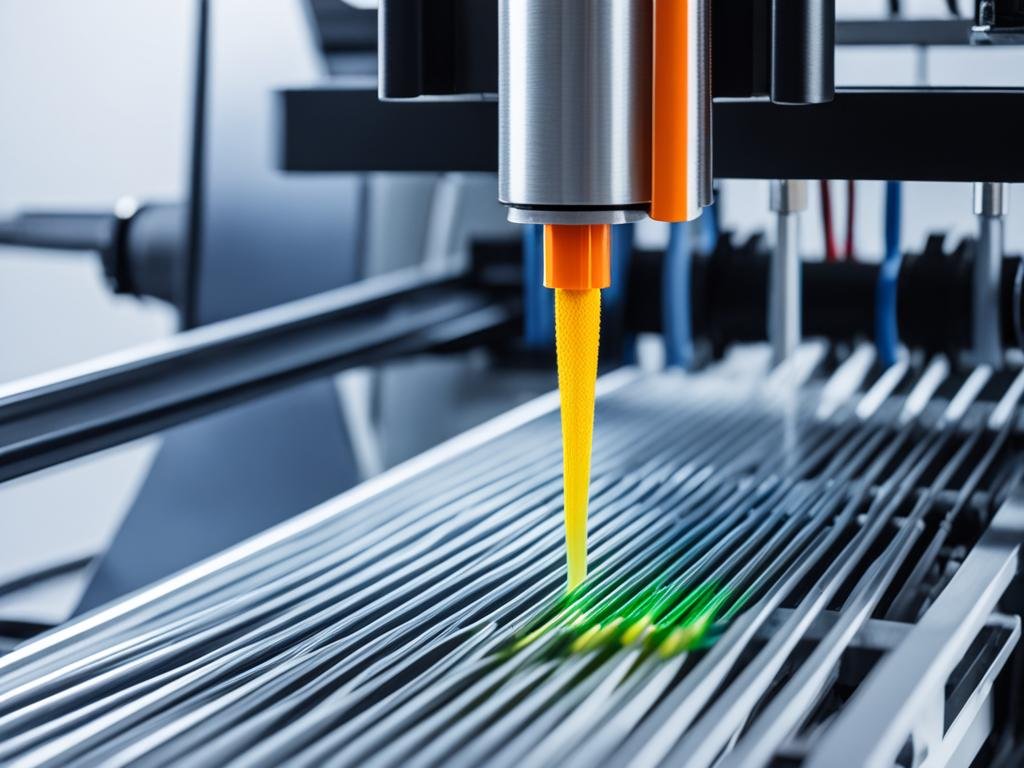The Link Between Depression and Physical Health
March 9, 2024 | by spousingitup

I navigate life with osteoporosis, a condition characterized by weakened bones, and chronic obstructive pulmonary disease (COPD), which affects my lungs and breathing. In addition to these health challenges, my husband copes with agoraphobia, a fear of certain spaces, as well as severe anxiety and depression. These conditions present daily obstacles, but we have found therapy and solace in our creative pursuits, uncovering the powerful impact of art on our mental and physical well-being.
Living with osteoporosis and COPD requires a careful balance of managing symptoms, following treatment plans, and maintaining a healthy lifestyle. Osteoporosis poses the risk of fractures and bone fragility, while COPD limits my lung function and can lead to breathing difficulties. The combination of these conditions requires me to be proactive in my daily routines and prioritize self-care.
On top of that, my husband’s agoraphobia, anxiety, and depression can make it challenging for him to leave the house, interact with others, and engage in activities that bring joy. However, in the midst of these struggles, we have discovered the transformative power of art as a therapeutic outlet. Whether it’s painting, writing, or playing music, our creative pursuits provide a sense of peace, freedom, and self-expression.
Key Takeaways:
- Depression can have profound effects on physical well-being, leading to symptoms such as chronic pain, weight changes, inflammation, and gastrointestinal problems.
- The correlation between mental wellness and physical well-being highlights the importance of addressing both emotional and physical health in achieving overall well-being.
- Creative pursuits can serve as a therapeutic outlet for individuals facing mental and physical health challenges, providing solace, self-expression, and a sense of resilience.
- Managing and treating all symptoms of depression, including physical symptoms, is crucial in achieving full remission and improving quality of life.
- Seeking support and finding healthy coping mechanisms, such as engaging in creative activities, can be instrumental in navigating the daily challenges of living with depression and chronic health conditions.
Physical Effects of Depression
Depression can have a range of physical effects on the body. These include:
- Chronic pain, such as joint or muscle pain
- Weight changes, such as unintended weight loss or gain
- Inflammation, which has been linked to conditions such as irritable bowel syndrome (IBS), type 2 diabetes, and arthritis
- Heart disease, as depression can increase blood pressure and heart rate and lead to unhealthy habits
- Sexual health problems, including decreased libido, difficulty becoming aroused, and problems with orgasm
- Worsening chronic health conditions, making them more difficult to manage
- Trouble sleeping
- Gastrointestinal problems, such as stomachaches and constipation
The physical effects of depression can significantly impact an individual’s overall well-being and quality of life. It is important to recognize and address these effects in order to provide comprehensive care for individuals with depression. By addressing both mental and physical health, healthcare professionals can help patients achieve optimal treatment outcomes and improve their overall well-being.
Effects of Depression on the Nervous System
Depression can have various effects on the central nervous system. The nervous system, which includes the brain, spinal cord, and nerves, plays a crucial role in regulating our emotions, thoughts, and bodily functions. When depression affects the nervous system, it can lead to several cognitive, emotional, and physical changes.
Cognitive Changes
- Memory Loss: Older adults with depression may experience memory loss and have difficulties with recalling information. This can affect their daily life and overall cognitive functioning.
- Slower Reaction Time: Depression can also slow down reaction time, making it more challenging to process and respond to stimuli quickly.
Emotional and Physical Symptoms
- Emotional Symptoms: Depression commonly presents symptoms such as overwhelming sadness, grief, feelings of emptiness or hopelessness, and a loss of interest in activities that were once enjoyed.
- Physical Symptoms: In addition to emotional changes, depression can manifest in physical symptoms such as fatigue, irritability, anger, and headaches.
These symptoms can significantly impact daily life, work productivity, and overall well-being. The presence of chronic pain, which is common among individuals with depression, can further contribute to fatigue and cognitive impairment. Difficulty concentrating, making decisions, and experiencing mental fog can further hinder one’s ability to function optimally.
Depression affects not only our mood but also our cognitive abilities and physical well-being. It is important to address these effects and seek appropriate treatment to alleviate symptoms and improve overall functioning.

The Relationship Between Depression and the Digestive System
Depression can have a profound impact on the digestive system, leading to various symptoms that can further exacerbate overall health issues. One of the key effects of depression on the digestive system is appetite changes. Some individuals may experience overeating, leading to weight gain, while others may have a loss of appetite, resulting in weight loss. These fluctuations in appetite can have a significant impact on a person’s physical well-being.
In addition to appetite changes, individuals with depression may also experience stomachaches and cramps. These gastrointestinal problems can cause discomfort and affect daily life. Furthermore, depression can contribute to constipation, leading to further digestive issues and discomfort. Poor eating habits, often associated with depression, can result in malnutrition, further exacerbating the overall health challenges individuals face.
Maintaining a healthy diet is crucial for supporting both physical and mental well-being. Consuming nutrient-rich foods can help address nutritional deficiencies and alleviate digestive problems associated with depression. It is also important to seek professional help and support to effectively manage and treat depression, as this can help alleviate the physical symptoms and improve overall health outcomes.
“Depression can have a profound impact on the digestive system, leading to various symptoms that can further exacerbate overall health issues.”

By understanding the intricate relationship between depression and the digestive system, we can take proactive steps to address the physical symptoms associated with depression. A holistic approach that combines both mental health and physical health interventions is essential for achieving optimal well-being.
The Impact of Depression on the Cardiovascular and Immune Systems
Depression not only affects mental health, but it also has significant impacts on the cardiovascular and immune systems. Studies have shown that depression is considered an independent risk factor for heart health problems, increasing the risk of conditions such as high blood pressure and heart disease.
Chronic stress and depression can also lead to inflammation in the body, which can have negative effects on the immune system. This inflammation disrupts the immune system’s normal functioning, making individuals more vulnerable to infections and autoimmune disorders.
The exact link between depression, inflammation, and immune functioning is still not fully understood and requires further research. However, the evidence suggests that depression plays a role in the disruption of the cardiovascular and immune systems, highlighting the importance of addressing both mental and physical health in individuals with depression.
| Impact of Depression | Cardiovascular System | Immune System |
|---|---|---|
| Increased risk of heart disease and high blood pressure | Chronic stress and depression can lead to physiological changes that contribute to heart problems. Individuals with depression are more likely to develop heart disease. | |
| Inflammation | Depression can trigger systemic inflammation, which can impact the immune system and make individuals more susceptible to infections and autoimmune disorders. | |
| Impaired immune function | Depression can disrupt the normal functioning of the immune system, making individuals more vulnerable to infections and slow wound healing. |
“`
Addressing both the mental health and physical health aspects of depression is essential for overall well-being. This may involve a combination of therapy, medication, and lifestyle changes. By prioritizing the management of depression and its effects on the cardiovascular and immune systems, individuals can improve their quality of life and reduce the risk of associated complications.
Conclusion
Depression doesn’t just impact our mental health, but also has significant implications for our physical well-being. Its effects are wide-ranging and can manifest as chronic pain, weight fluctuations, inflammation, and gastrointestinal issues. Moreover, individuals with depression are at a higher risk of exacerbating existing chronic conditions and developing cardiovascular problems.
To achieve holistic well-being, it is crucial to recognize and address the physical consequences of depression. Treatment for depression often involves a combination of medication, therapy, and lifestyle changes. Seeking professional help and support is essential in managing both the physical and mental health impacts of depression.
By prioritizing both our mental and physical health, we can take proactive steps towards improving our overall well-being and living a fulfilling life. Remember, depression doesn’t have to define us, and with the right treatment and support, we can overcome its challenges and regain control of our lives.
FAQ
What are the physical effects of depression?
The physical effects of depression can include chronic pain, weight changes, inflammation, heart disease, sexual health problems, worsening of chronic health conditions, trouble sleeping, and gastrointestinal problems.
How does depression impact the nervous system?
Depression can lead to cognitive changes, such as memory loss and slower reaction time. It can also cause fatigue, irritability, anger, loss of interest, and headaches.
How does depression affect the digestive system?
Depression can result in appetite changes, either overeating or loss of appetite, leading to weight gain or loss. It can also cause stomachaches, constipation, and malnutrition.
What is the relationship between depression and the cardiovascular system?
Depression is considered an independent risk factor for heart health problems and can increase the risk of conditions such as high blood pressure and heart disease.
How does depression impact the immune system?
Chronic stress and depression may lead to inflammation and impact the immune system, making individuals more vulnerable to infections and autoimmune disorders.
What is the link between depression and overall health?
Depression can have a profound impact on physical well-being, worsening chronic health conditions and increasing the risk of cardiovascular problems. It is important to address the physical effects of depression for overall health and well-being.
Source Links
RELATED POSTS
View all



